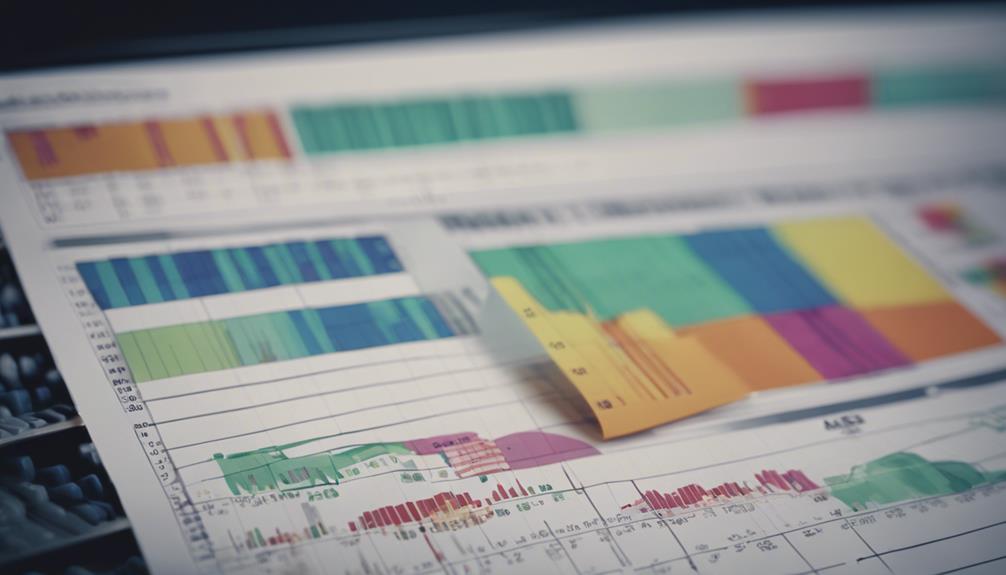Deciphering the mysteries of general ledgers is essential to understanding a company's financial position and operational efficiency. General ledgers serve as the foundation for recording financial transactions, vital for maintaining accurate financial records and monitoring balances. They consist of individual ledger accounts that offer detailed transaction information. By examining and analyzing general ledgers, one can gain insights into a company's financial health, terms like Chart of Accounts, and how to analyze closing entries for balanced transfers. Utilizing tools like EBizCharge can simplify ledger management processes, improve efficiency, and enhance financial visibility. Delving deeper will uncover valuable ways to enhance financial insights and streamline financial record-keeping processes.
Key Takeaways
- General ledgers are the foundation for recording financial transactions accurately.
- Ledger accounts provide detailed transaction information for monitoring balances.
- Understanding common terms like Chart of Accounts is essential for reading and analyzing general ledgers.
- Utilize reference document numbers to link related entries for insights into a company's financial health.
- Enhance financial insights with tools like Ebizcharge for real-time transaction recording and efficient payment processing.
Importance of General Ledgers
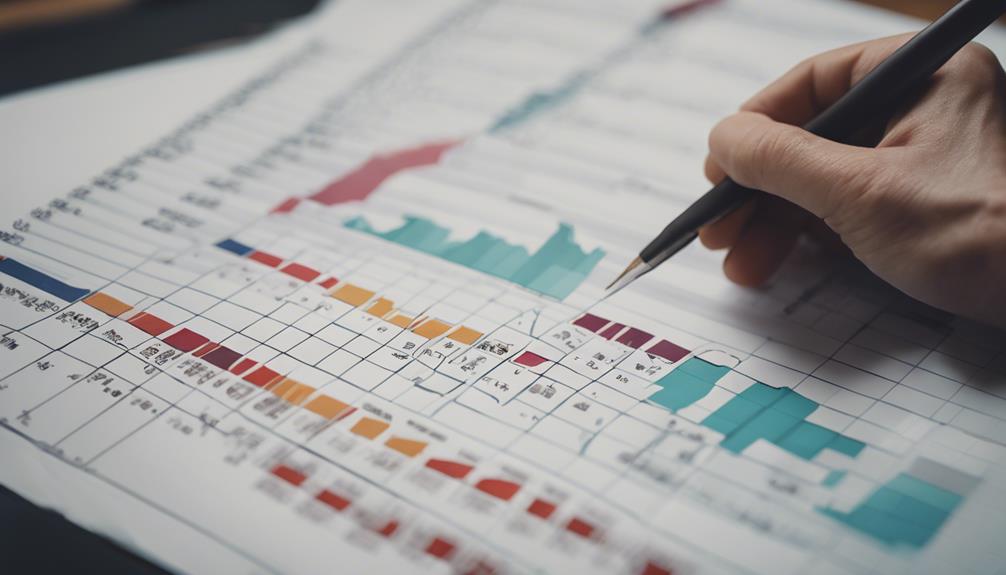
General ledgers play an essential role in businesses by serving as the foundation for recording and tracking financial transactions. They're vital for maintaining accurate financial records, monitoring balances, and generating essential financial statements.
General ledgers contain individual ledger accounts that provide detailed information about specific transactions. These accounts act as the building blocks of the ledger system, ensuring that every financial transaction is properly documented.
Understanding Ledger Accounts
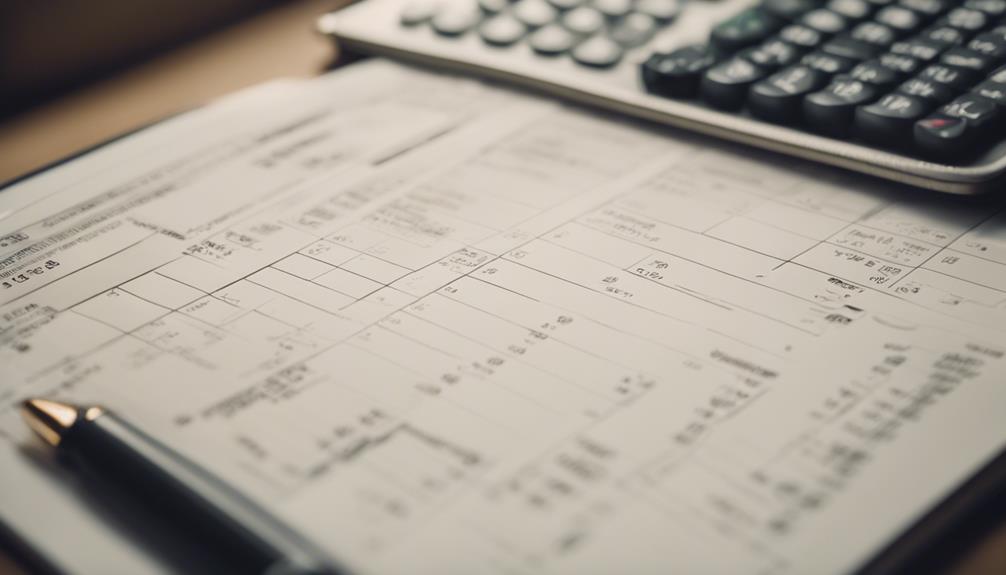
Shifting from the significance of general ledgers, comprehending ledger accounts is essential in understanding the detailed information about specific transactions within a business's financial records.
- Ledger accounts are individual components in the general ledger that track and record business transactions.
- They serve as the building blocks of the ledger system, providing a granular view of financial activities.
- Ledger accounts help in monitoring balances, tracking transactions, and generating accurate financial statements.
- Understanding ledger accounts is vital for businesses to maintain organized and transparent financial records, aiding in decision-making processes and ensuring financial health.
Reading and Analyzing General Ledgers
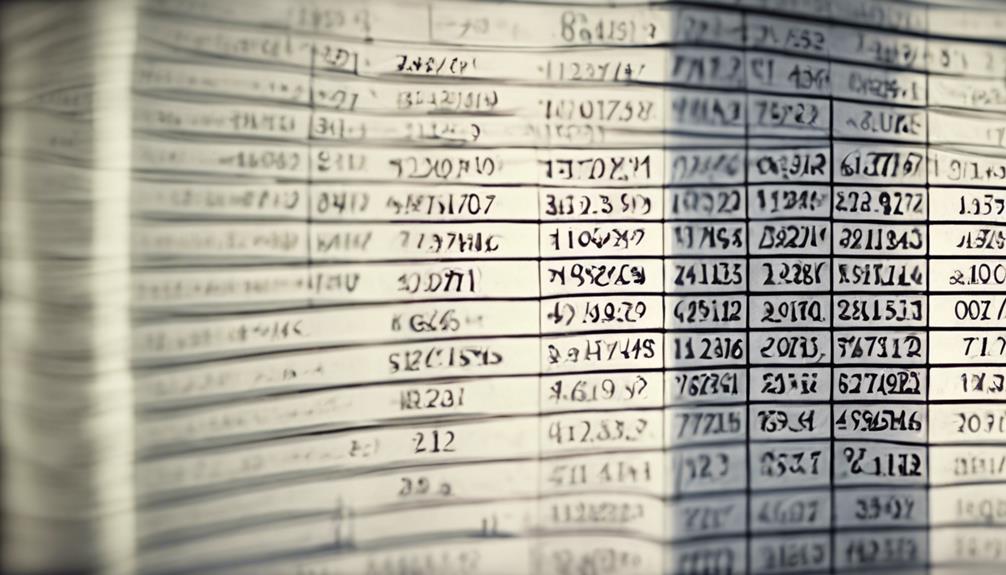
When examining general ledgers, one can gain valuable insights into a company's financial health and performance. By reviewing the structure and standard terminology, one can decipher the information presented.
Common terms such as Chart of Accounts (COA), Date column, Debit and credit columns, and running balance columns provide a framework for understanding transactions. Reference document numbers help link related entries, while closing entries aid in transferring balances effectively.
Analyzing general ledgers requires attention to detail and a thorough understanding of how transactions are recorded and summarized. This process allows stakeholders to track financial activities, monitor balances, and generate accurate financial statements.
Reading and interpreting general ledgers is essential for making informed decisions and evaluating the overall financial status of a business.
Enhancing Financial Insights With Ebizcharge

Enhancing financial insights becomes streamlined with Ebizcharge, providing businesses with real-time transaction recording and seamless integration for accurate financial data. Businesses can benefit from this tool in several ways:
- Real-Time Transaction Recording: Ebizcharge allows for immediate recording of transactions, ensuring up-to-date financial data.
- Seamless Integration: The tool seamlessly integrates with existing systems, reducing the likelihood of errors and discrepancies.
- Enhanced Financial Visibility: Ebizcharge offers insights into the financial standing of the business, aiding in decision-making processes.
- Efficient Payment Processing: By automating payment processing tasks, Ebizcharge helps businesses save time and resources.
Implementing Ebizcharge can greatly improve financial management processes, making it a valuable asset for businesses looking to enhance their financial insights.
Simplifying Ledger Management Processes
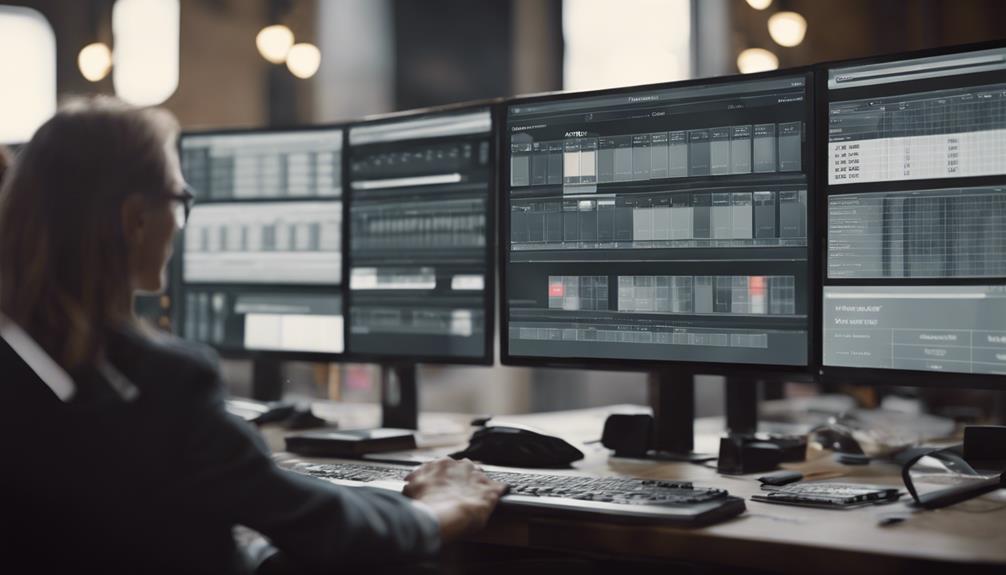
To streamline the management of ledger processes, businesses can leverage efficient tools like EBizCharge for simplified financial record-keeping and transaction monitoring. EBizCharge offers features that enhance the overall ledger management process, providing insights into the company's financial standing while reducing manual errors. By automatically recording transactions in real time, EBizCharge simplifies payment processing tasks and guarantees accurate financial data. Using EBizCharge can greatly improve the efficiency and accuracy of managing ledger processes, ultimately saving time and resources for the business. Below is a table highlighting the key benefits of using EBizCharge for ledger management:
| Benefits | Description |
|---|---|
| Enhanced Financial Standing | Gain insights into the company's financial position |
| Reduced Manual Errors | Minimize mistakes in financial record-keeping |
| Real-time Transaction Recording | Automatically record transactions as they occur for up-to-date information |
Frequently Asked Questions
Can General Ledger Accounts Be Customized to Suit Specific Business Needs?
General ledger accounts can indeed be customized to suit specific business needs. This customization allows businesses to tailor their financial tracking to match their unique requirements.
How Are Errors in the General Ledger Typically Identified and Corrected?
Errors in the general ledger are typically identified and corrected through a process of reconciliation and review. This involves comparing transactions with supporting documents, investigating discrepancies, and making adjustments as needed.
What Is the Impact of Outdated or Inaccurate Ledger Entries on Financial Reporting?
Outdated or inaccurate ledger entries can have a substantial impact on financial reporting. Errors in the general ledger can distort financial statements, leading to misleading insights about a company's financial health.
These inaccuracies may result in incorrect decision-making, affecting budgeting, forecasting, and overall business strategies. Regularly reviewing and updating ledger entries is vital to guarantee the accuracy and reliability of financial reports for stakeholders and regulatory compliance.
Are There Best Practices for Maintaining Data Security and Integrity in the General Ledger?
Maintaining data security and integrity in the general ledger involves implementing best practices. Regularly review access controls, restrict permissions based on roles, and conduct periodic audits.
Encryption of sensitive data and secure backups are essential. Utilize software with robust security features and make sure staff receive training on data protection.
Promptly address any discrepancies or suspicious activities. By following these practices, businesses can safeguard their financial information and maintain the integrity of their general ledger.
How Can General Ledger Data Be Used to Detect Potential Fraud or Irregularities in a Business?
When examining general ledger data for potential fraud or irregularities, users can look for unusual patterns, duplicate entries, or unexpected fluctuations.
Discrepancies between recorded transactions and actual financial activities could raise red flags. Analyzing transaction details, comparing against industry norms, and conducting regular audits are common practices to detect anomalies.
Utilizing specialized software for data analysis and implementing segregation of duties can further enhance fraud detection capabilities.
Conclusion
To wrap up, general ledgers are akin to the compass of a ship, guiding businesses through the vast sea of financial transactions. Understanding ledger accounts is crucial to charting this intricate system and revealing valuable insights into a company's financial health.
By utilizing tools like EBizCharge, businesses can simplify and streamline their ledger management processes, ensuring accuracy and efficiency in their financial record-keeping. Stay focused on the details, and your financial journey will be smooth sailing.

